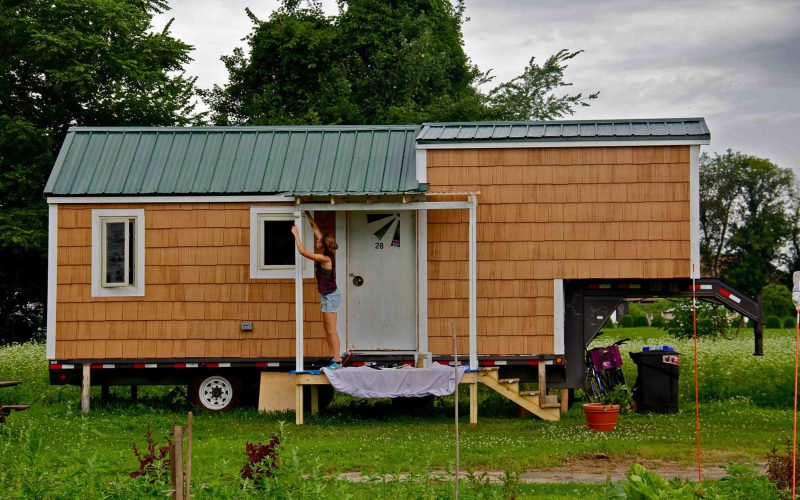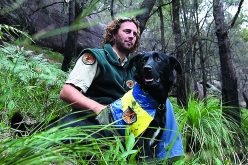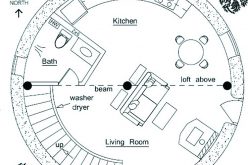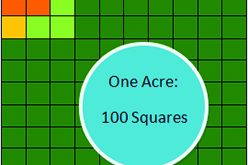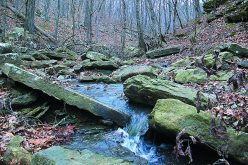Research can find legal ways to go tiny
AMANDA BANCROFT
Making Ripples

File Photo
Sarah Hastings paints the porch of her 190-square-foot tiny house in Hadley, Mass., before being cited for breaking zoning laws. In many places, it’s still a struggle to live legally in tiny houses.
The movement for tiny homes is big! But one concern among tiny house haters and lovers alike: Are they legal? The majority of people have a gut response of “No.” But the truth is, it depends on location, ownership, whether the home is permanent or mobile, insurance, on- or off-grid utilities, zoning, building codes and certification requirements.
First, location: Before shopping for a tiny house, pick a location and analyze every angle for legality. Even the best tiny house won’t be legal if there is a homeowners’ association or zoning law against it. There may be a law requiring every home in a neighborhood to be of a very large size.
If you could live anywhere in the country, then there are various websites to help you find where tiny homes are allowed. If there’s really only one area where you want to live, the best thing is to pick your spot or selection of options and research each location. Call the city or county office in charge of zoning, and ask them if your specific kind of tiny house is allowed on your tract of land.
Will you own or lease the location? Tiny houses can be legal in a variety of owned and leased scenarios. It’s common in leased scenarios for the tiny house to be on wheels, especially if the home is owned by someone who does not own the land, but there are leases in the region for houses with foundations on leased land. Having a foundation or wheels will both potentially subject the tiny home to different sets of rules, but again it depends on other factors in play.
What utilities will your tiny home have? If it will be connected to city water and other standard hookups, the home may be subject to inspection and might have to meet the requirements of a larger conventional home (which a tiny house may not be able to do, but can do in certain circumstances). If it will be off-grid, it’s less likely that there will be any issues, but there may be laws against rainwater catchment, separate solar systems or dry toilets. The Arkansas Department of Health has authorized two varieties of self-contained composting toilet, the Clivus Multrum and the Sun Mar brands, so you might start there.
Most people balk at tiny houses being legal because they don’t think they can meet building codes. In reality, it depends: some tiny houses are unsafe, some are not required to meet any codes in their location, and others do meet codes. NOAHCertified.org explains the inspection and certification process specifically designed for tiny homes. NOAH is the “National Trade Association for builders, manufacturers & DIY’ers, producing Tiny Houses, suitable for permanent, full-time or part-time residential living.” Compare this to the RVIA Certification standard for RVs (recreational vehicles). Some tiny homes that are outside of any municipality don’t come under the authority of any building codes, and their county may not issue building permits (such as in the case of Washington County). But again it depends: a tiny house outside of any municipality may not be allowed on a certain tract of land, and will be required to meet certain laws governing standard utility hookups if it’s not off-grid.
Some tiny house leases will require insurance, and most people don’t know that tiny house insurance exists! It’s possible to get insurance specifically for tiny homes through InsureMyTinyHome.com. They consider angles specific to tiny homes, such as the home being stolen. You can get a GPS tracking device that texts your cell phone if your tiny home on wheels starts moving without your permission.
Rumor has it that tiny homes are difficult to finance. Luckily, it’s only a rumor. It’s fairly straightforward to get a loan through LightStream.com by searching “Tiny Home/Park Model Financing.” For anyone considering a tiny home, just research extensively and ask authorities. You never know when the answer might be “Yes!”
Amanda Bancroft is a writer, artist, and naturalist building an off-grid cottage for land conservation on Kessler Mountain. She and her husband Ryan blog about their adventures and offer a solar-hosted online educational center on how to make a difference with everyday choices at www.RipplesBlog.org.

